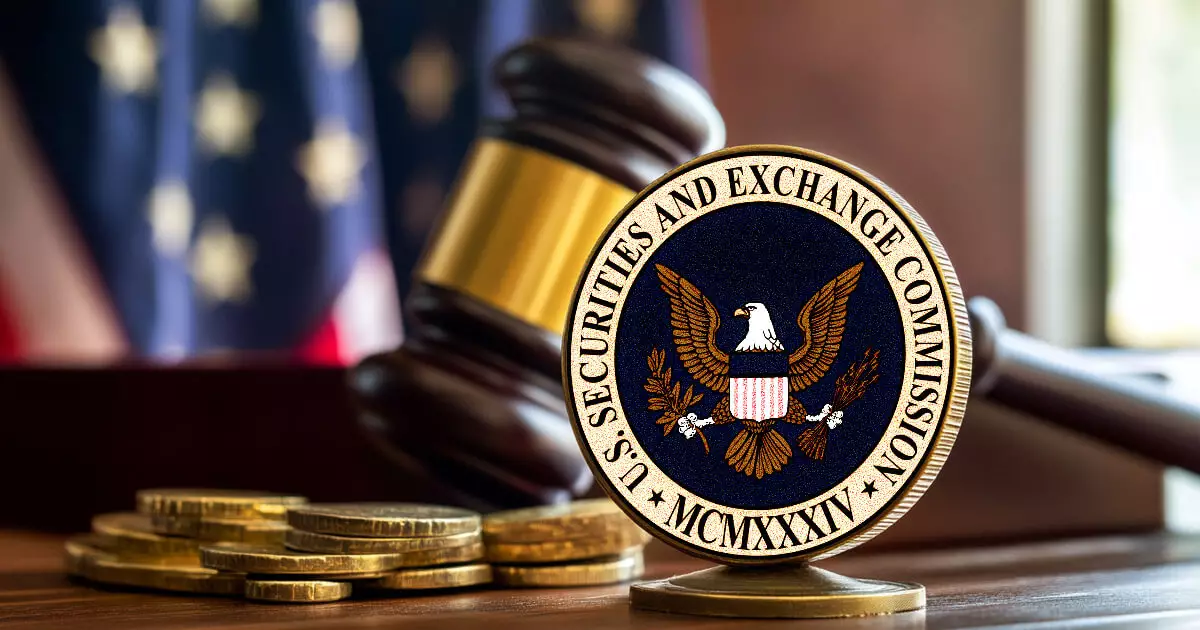On October 10, 2023, the U.S. Securities and Exchange Commission (SEC) made headlines by charging Cumberland DRW, a prominent crypto market maker based in Chicago, with operating as an unregistered securities dealer. This move sparks significant discussions regarding regulatory oversight of the rapidly evolving cryptocurrency sector. The SEC claims that since March 2018, Cumberland has facilitated transactions exceeding $2 billion in crypto that it deems to be securities—a classification that the agency argues necessitates registration and compliance with federal laws designed to protect investors.
At the heart of the SEC’s allegations is the assertion that Cumberland has been trading cryptographic assets through its platform, Marea, as well as over the phone, without proper registration. The SEC emphasizes that federal securities laws mandate registration for all securities dealers, regardless of the asset class or market in which they operate. This stance has led to a significant backlash from portions of the crypto community, which often argue for a distinction between tokens that should be viewed as commodities rather than securities.
Jorge G. Tenreiro, the acting chief of the SEC’s Crypto Assets and Cyber Unit, strengthens the SEC’s position by asserting that Cumberland’s actions explicitly demonstrated the sale and offering of crypto assets, qualifying them as securities. This brings forth an ongoing debate about the classification of various digital assets and the need for continued dialogue between regulatory authorities and market participants to establish clear guidelines.
The SEC’s complaint requests several punitive measures, including permanent injunctions, profit disgorgement, prejudgment interest, and civil penalties against Cumberland. This raises substantial concerns regarding Cumberland’s future in a crypto landscape that continues to shift. The firm has publicly stated its commitment to compliance, suggesting it intends to maintain its operations and push back against the SEC’s assertions. In its defense, Cumberland contends that the SEC’s actions not only threaten its business practices but could also stifle broader innovation in the crypto market.
The company’s narrative paints a picture of ongoing scrutiny and struggle against an evolving regulatory framework. Historically, Cumberland claims to have engaged with the SEC for five years regarding the parameters of its operations, suggesting a dedicated attempt to align with existing regulations while navigating the ambiguous landscape of digital asset trading.
Cumberland provides liquidity across various cryptocurrency markets, including over-the-counter transactions and crypto derivatives, which raises additional questions about market fluency and the ability to enforce consistency in regulatory applications. The complexity of the current regulatory environment, combined with the diverse nature of crypto assets, poses an immense challenge for both established firms and new entrants alike.
Moreover, it is essential to consider the SEC’s historical context. The agency’s scrutiny of digital assets parallels its involvement with traditional securities; however, the stakes are perceived to be higher in the crypto realm, characterized by rapid innovation and a volatile market. The previous regulatory actions by the CFTC against DRW posed questions about market manipulation and transparency, leading to inherent skepticism regarding the enforcement of rules across the board.
As the SEC’s complaint against Cumberland unfolds, it represents not just a singular event but a crucial component in the larger narrative surrounding cryptocurrency regulation. For companies involved in crypto trading, the implications of this case underscore the necessity for robust compliance frameworks and adaptive strategies in response to the SEC’s evolving stance. As the crypto landscape matures, the clarification of regulatory frameworks remains imperative for ensuring investor protection and market integrity.
The ongoing legal battle between the SEC and Cumberland DRW is emblematic of the broader regulatory challenges faced by the crypto industry. The intersection of innovation and regulation raises vital questions: How can regulatory bodies balance their mandates while fostering an environment conducive to growth? The outcomes of such cases are likely to be significant for the future trajectory of the cryptocurrency ecosystem.

